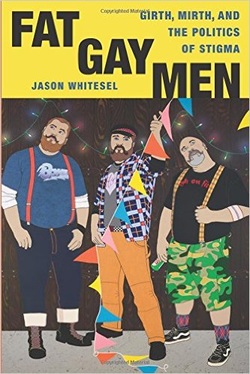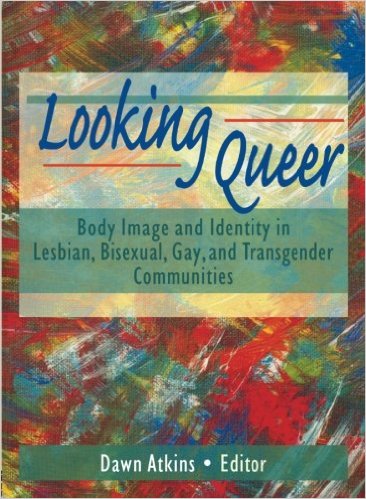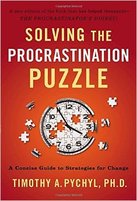Whitsel is a partial insider (gay) as well as an outsider (thin) to this social group, and is thoughtful about his role as researcher, as well as his limited ability to critique the omnipresent fatphobia in gay culture. He is presumed (by his presence at these events) to be a "chaser," and hence explores the world of "courtesy stigma" as well as the shift in the typical power dynamics between men. Further discussions on the intersections of race and other oppressed identities are absent, and the writing does tend towards the academic; however, these narratives are a welcome change from the usual stereotypes of gay desirability and fat invisibility. Allow me to share a particularly interesting passage from his conclusion: This ethnography of Girth & Mirth culture provides a smorgasbord of strategies for dealing with the shame of fat stigma. Despite their unfortunate tendency to internalize shame and allow it to run their lives, big men continue to find more productive outlets, such as sexual objectification, status differentiation, and celebrating otherness. One of my personal favorites is campy-queer performances that utterly disregard shame, playfully acknowledging one's size in relation to one's sexuality. What a burden it is to be stigmatized, and what an admirable feat to perform one's way out of the isolation of being stigmatized. Undoubtedly, the road to acceptance appears paved with something more than simply managing stigma: it requires an unforgettable performance.
I would be delighted and grateful to hear any recommendations of other material that address this subject matter! Thank you for reading, and for anything you can share.
0 Comments
After becoming aware of Canadian researcher Timothy A. Pychyl's blog Don't Delay, which discusses the science behind procrastination, I purchased Solving the Procrastination Puzzle: A Concise Guide to Strategies for Change, a short (by design) presentation of his team's research, formulated into practical advice on how to break our most entrenched task completion habits.
As expected, on Monday when participants were avoiding some task(s) in preference to others, we found that they typically said things like, "I'll feel more like doing that tomorrow" or "Not today. I work better under pressure." We rationalize the dissonance between our behaviors (not doing) and our expectations of ourselves (I should be doing this now). Later in the week few, if any, participants spontaneously said things like "I feel like doing that [avoided task] today" or "I'm glad I waited until tonight, because I work better like this." More surprisingly, we found a change in the participants' perceptions of their tasks. On Monday, the dreaded, avoided task was perceived as very stressful, difficult, and unpleasant. On Thursday (or make that in the wee hours of Friday morning), once they had actually engaged in the task they had avoided all week, their perceptions changed. The ratings of task stressfulness, difficulty and unpleasantness decreased significantly. What did we learn? Once we start a task, it's rarely as bad as we think. In fact, many participants made comments when we paged them during their last-minute efforts that they wished they had started earlier - the task was actually interesting, and they thought they could do a better job with a little more time. Given the large costs often involved, why, then, do we habitually procrastinate? A flash of insight occurred while reading Give in to Feel Good--another of his popular blog entries--which reframes task avoidance as an attempt at short-term mood repair. This also shed some light on the difficulty those struggling with depression and anxiety have with facing unpleasant tasks: if your mood is already low, avoidance will be a compelling short-term method to regulate your level of distress.
Like many instant gratification techniques, however, the long-term consequences eventually become greater than the immediate rewards. My clients have reported that applying the simple insight of "I don't actually have to be in the mood in order to get started on something," has been helpful in shifting their long-standing patterns of work avoidance, and thus reducing the costs of that avoidance. Check out Dr. Pychyl's blog and his book for more great insights and tips, and please feel free to share your own! * Just kidding! Therapists never procrastinate :) I greatly enjoyed* and have already reaped much therapeutic mileage from Pixar's summer film, Inside Out, with its reminder that exiling the experience of sadness can often leave our lives psychically poorer, and that the basis for human empathy and connection resides in our ability to have full access to our entire range of feelings.
I also appreciated the ability of this film to portray our core emotions as incredibly salient, caricatured personalities, as this directly mirrors the work that I often do with my own clients. Externalizing strong feelings, inner states, or critical voices into visible entities can be helpful in partially de-identifying with our impulses, allowing us to view ourselves with greater neutrality and compassion. It can also be helpful in facilitating much-needed conversations with these parts of ourselves while in a supportive therapeutic atmosphere. I can't imagine that I was the only therapist or healer to get excited over the potential applications of this film, and I would be very curious to hear from others about how they have integrated this artful bit of pop culture into their practice. Please do feel free to reply back to me with any thoughts you might have on the matter! * Though I entered the theater expecting to cringe at least once over the portrayal of complex neuroscience and cognitive psychology concepts, I found that the only truly upsetting element was the highly size-negative/fat-shaming representation of Sadness (as held in contrast with Joy and Disgust). A less stereotypical approach at constructing their appearances would have been much welcome. |
Jessica Katzman, Psy.D.I'm a psychologist with a private practice in San Francisco's Castro District. I'm interested in harm reduction, LGBTQQIAAP issues, psychedelic integration, social justice conversations, size acceptance, and any intersections of the above. I welcome your comments! Categories
All
Archives
June 2020
Disclaimer: The information and resources contained on this website are for informational purposes only and are not intended to assess, diagnose, or treat any medical and/or mental health disease or condition. The use of this website does not imply nor establish any type of therapist-client relationship. Furthermore, the information obtained from this site should not be considered a substitute for a thorough medical and/or mental health evaluation by an appropriately credentialed and licensed professional. This website includes links to other websites for informational and reference purposes only. This website does not endorse, warrant or guarantee the products, services or information described or offered at these other websites. Examine the content carefully.
|




 RSS Feed
RSS Feed